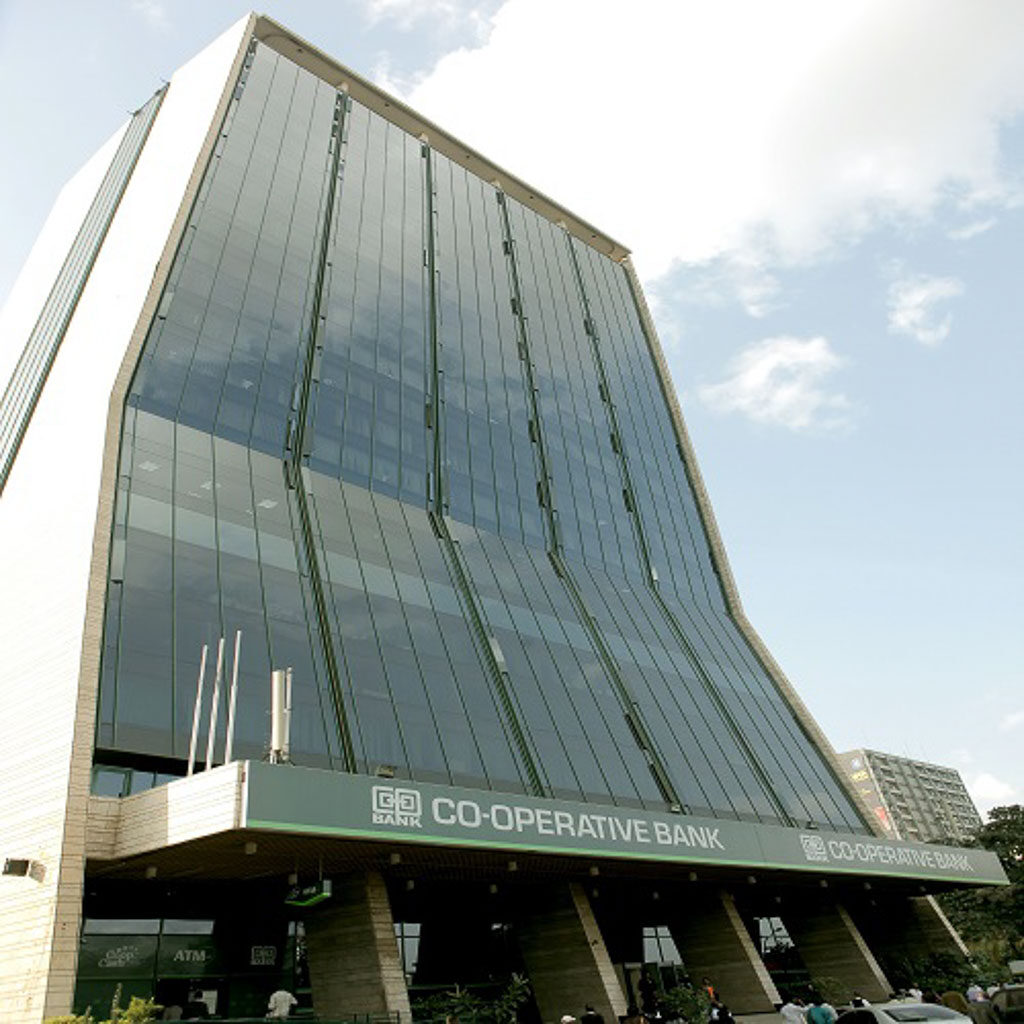Co-operative Bank of Kenya has been ranked overall second-best in financial performance among the listed banks in Kenya.
Co-op Bank’s rank improved to Position 2 from Position 3 in FY’2019 mainly due to an improvement in the Gross NPL ratio to 10.8 per cent in Q1’2020 from 11.2 per cent in FY’2019, in turn, improving its franchise value score.
The overall ranking was based on a weighted average ranking of Franchise value (accounting for 40 per cent) and intrinsic value (accounting for 60 per cent). The Intrinsic Valuation is computed through a combination of valuation techniques, with a weighting of 40.0 per cent on Discounted Cash-flow Methods, 35.0 per cent on Residual Income and 25.0 per cent on Relative Valuation, while the Franchise ranking is based on banks operating metrics, meant to assess efficiency, asset quality, diversification, and profitability, among other metrics.
Following the release of the Q1’2020 results by Kenyan listed banks, the Cytonn Financial Services Research Team undertook an analysis on the financial performance of the listed banks and identified the key factors that shaped the performance of the sector, and expectations of the banking sector for the rest of the year.
The report, themed “Depressed Earnings and Deteriorating Asset Quality amid the COVID-19 Operating Environment,” analyzed the H1’2020 results of the listed banks.
KCB Group whose rank declined to Position 3 from Position 1 in FY’2019 mainly due to a deterioration in the cost to income ratio to 61.1 per cent in Q1’2020 from 56.2 per cent in FY’2019 thus, in turn, worsening the franchise value score.
Asset quality for listed banks deteriorated in H1’2020 with the Gross NPL ratio rising by 1.6 per cent points to 11.6 per cent from 10.0 per cent in H1’2019. This was high compared to the 5-year average of 8.5 per cent.
Consequently, this led to increased provisioning across the industry to proactively manage risks given the tough economic conditions, which saw the NPL coverage rising to 57.8 per cent in H1’2020 from 55.9 per cent recorded in H1’2019.
In accordance with IFRS 9, banks are expected to provide both for the incurred and expected credit losses.
“We expect higher provisional requirements to subdue profitability during the year across the banking sector on account of the tough business environment”, said David Gitau, Investment Analyst at Cytonn Investments.
Five key drivers shaped the Banking sector in H1’2020, namely regulation, monetary policy, consolidation, asset quality, and capital conservation.
On the regulatory front, The Central Bank of Kenya on March 27, 2020 provided commercial banks and mortgage finance companies with guidelines on loan reclassification, and provisioning of extended and restructured loans as per the Banking Circular No 3 of 2020.
The Central Bank stipulated that banks would be allowed to extend loan repayments for their customers for a period not more than one year, the cost of restructuring and extension of loans would be met by the banks and they would have to report any restructuring in relation to the COVID-19 pandemic to the Central Bank monthly.
“According to data from the July 2020 Monetary Policy Committee (MPC) Meeting, this has seen a total of KSh844.0 billion, representing 29.1 per cent of the total KSh2.9 trillion banking sector loan book, being restructured as at June 2020,” said Ann Wacera, Analyst at Cytonn Investments.
While KCB Group recorded a decline in the franchise value ranking, coming in 6th mainly on the back of the deterioration of their asset quality as evidenced by the group’s high Non- Performing Loans (NPL) ratio of 13.8 per cent against a weighted average of 11.6 per cent.
Housing Finance came in 10th position on the back of weak franchise rankings scores as well as a non-promising future growth opportunity perspective as a result of lack of proper cost-efficiency structure.
Kenyan Business Feed is the top Kenyan Business Blog. We share news from Kenya and across the region. To contact us with any alert, please email us to [email protected]













